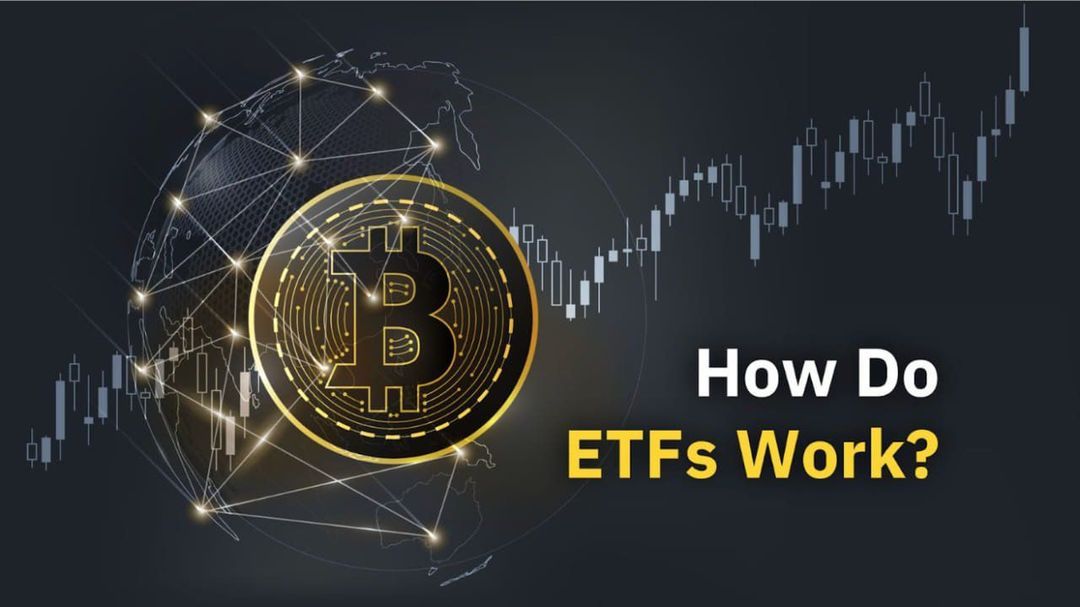What are ETFs and How Does It Work?

HSBC Hong Kong now enables trades of Bitcoin and Ether ETFs on Hong Kong's stock exchange. Let's learn how ETFs work.
HSBC Hong Kong, one for the leading banks in HK, has introduced the option for customers to trade bitcoin and other exchange-traded funds (ETFs) listed on Hong Kong's stock exchange
The bank's investment platform features three crypto ETFs: CSOP Bitcoin Futures ETF. CSOP Ethereum Futures ETF, and Samsung Bitcoin Futures Active ETF, as indicated by screenshots obtained by The Block
What Is An ETF?
An Exchange Traded Fund (ETF) is a popular investment instrument used to gain exposure to an index, commodity, currency, or market sector. Index and sector ETFs have become popular among investors looking to minimize risk and avoid picking individual stocks.
Warren Buffet has repeatedly stated that buying an ETF that tracks a major U.S. index. the safest bet for long-term investor However, while traditional stock investors have enjoyed the benefits of ETFs, those of us in the crypto space have so far seen U.S. regulates consistently back attempts to aunch an ETF that directly tracks the price of cryptocurrencies
This post will get you up-to-date on how ETFS work, the different types of ETFs, the top crypto ETFs, and the regulatory outlook for spot crypto ETFS
Types of ETFs
Here are three popular types of ETFs:
1. Sector ETFs provide investors with
ETFs are comprised of underlying assets such as stocks, commodities, currencies, or bonds and are managed passively or actively
Passive ETFs typically aim to replicate an index or a specific sector through a diverse portfolio of stocks. While portfolio managers actively select the securities that an active ETF holds, often deviating from the composition of indexes and sectors.
Here are three popular types of ETFs:
1. Sector ETFs provide investors with exposure to an entire market sector. For example, the iShares Information Technology ETF (IYW) holds securities of leading technology companies such as Nvidia and Meta.
2. Index ETFs track an index through a diversified portfolio of securities. For example, the Vanguard S&P 500 ETF (VOO) tracks the S&P 500.
3. Commodity ETFs track the value of commodities such as precious metals and oil without needing to purchase them physically. For example, the SPDR Gold Shares ETF (GLD) exposes investors to the price of gold.
Other types of ETFs include inverse, leveraged, and currency. These are often considered more complex financial instruments and are generally only used by professional traders.
Bitcoin and Crypto Spot ETFs
A Bitcoin or Crypto Spot ETF would function similarly to a commodity ETF by providing a trader with direct exposure to the price change of a digital asset such as Bitcoin without them having to purchase the asset.
A Spot ETF approved by US regulators could trade on the New York Stock Exchange (NYSE), An NYSE listing would make crypto more accessible to investors and potentially drive up the price of BTC and other crypto currencies. However, US regulators have repeatedly rejected attempts to launch Bitcoin Spot ETFs.
Spot Bitcoin ETF Regulation
Since the beginning of the 2022 crypto bear market, many people have hoped that a Spot ETF would trigger the next bull run. However, the U.S. Securities and Exchange Commission (SEC), the regulatory agency responsible for overseeing and enforcing federal securities laws, has yet to show interest in approving a spot Bitcoin ETF.
The most high-profile case of a Spot ETF being rejected involved Grayscale Investments. In 2022, the SEC rejected the firm's bid to convert its $13.5 billion Grayscale Bitcoin Trust (GBTC) into a spot ETF.
The SEC claimed that the ETF wouldn't meet standards due to market manipulation concerns. Grey Scale responded by suing the SEC. A response to Grey Scale's lawsuit against the SEC is expected in the second half of 2023.
Until a spot ETF is approved, we have to rely on ETFs that hold securities and futures contracts to gain exposure to crypto through the U.S. stock market.
Futures Crypto ETFs
A futures crypto ETF provides exposure to futures contracts.connected to the price c ¥ cryptocurrency instead of holding the asset. Traders can profit from the movement of the crypto's price by betting correctly on
15 comments